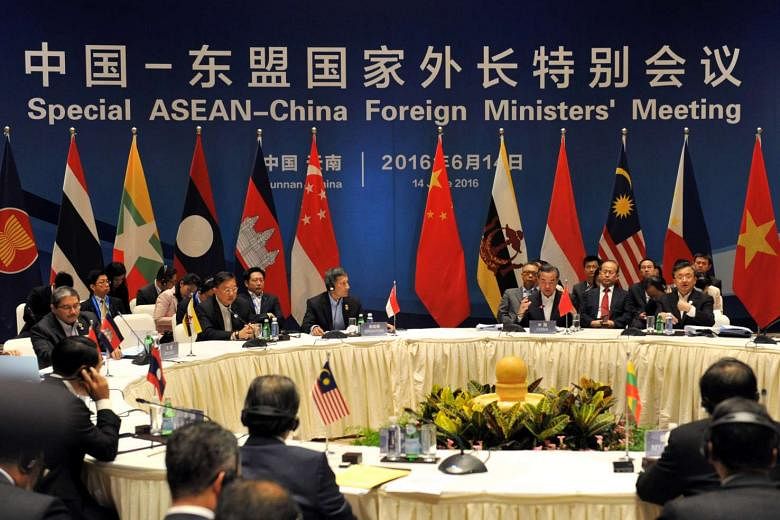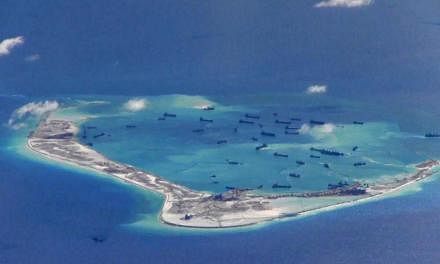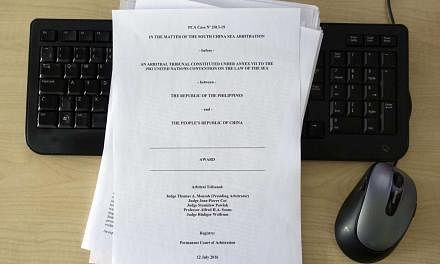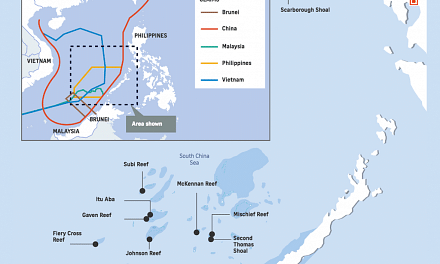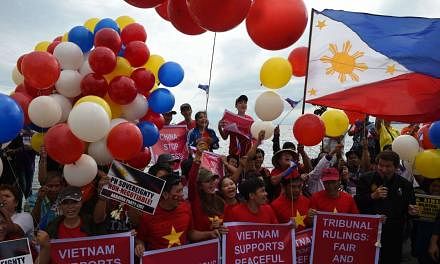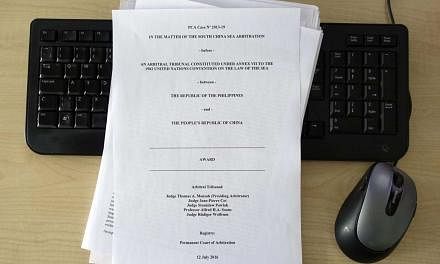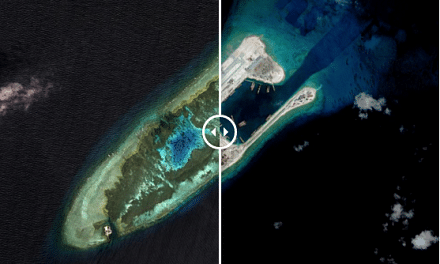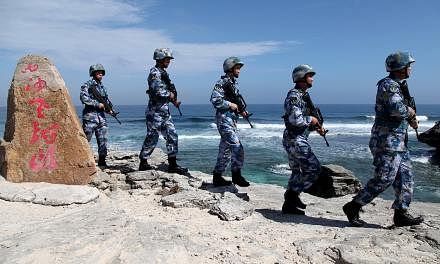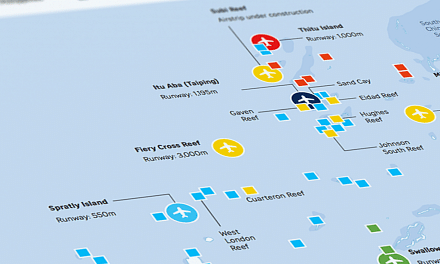Mergawati Zulfakar The Star/Asia News Network
After an international arbitral tribunal at the Hague ruled that China has no historic rights claim to resources within the South China Sea on Tuesday (July 12), Laos, which is Asean chair this year, sent out a note to Asean members asking whether they should issue an Asean statement on the ruling.
That Laos note gave a deadline of noon Wednesday (July 13) for Asean to decide whether it should come up with a statement.
But there was no draft statement circulated to agree on to begin with, as would be the norm.
The Philippines, which brought the case against China to an arbitral tribunal under the United Nations Convention on the Law of the Sea (UNCLOS), issued a statement immediately after the issuance of the award.
Malaysia, in the meantime, issued a statement seven hours later, asking claimant countries including China to find constructive ways to develop healthy dialogues, negotiations and consultations.
Back to the Laotian-proposed Asean statement, a check with Asean officials revealed that they are still working on a statement.
This only points to one thing: there may not be an Asean statement on the award at all because the grouping could not reach consensus.
It is understood Cambodia is not too keen.
Some see this as pressure from the China-friendly nation. Others want to study the ruling first.
In the case of Laos, it is also seen by many as pro-Beijing, so it is a half-hearted attempt, really, to pacify other Asean countries that they are doing something as Asean chair to address the disputed maritime claims.
It is a pity that while Asean countries were quick to reach a consensus to issue statements to address the terror attacks in Istanbul and Dhaka recently, they failed miserably to be united on an issue in their own backyard.
It is also deja vu following the fiasco over an Asean statement to be issued after the China-Asean meeting in Kunming last month.
It became global headlines after Wisma Putra issued an Asean statement, only to retract it just a few hours later saying urgent amendments had to be made after a wire agency ran a story quoting the statement that Asean has "serious concerns" over recent events in the disputed South China Sea.
Wisma Putra came out with a clarification a few days later, insisting that the statement "enjoyed" the consensus of all countries.
The South China Sea issue is a thorn in the flesh among Asean countries, of which four Asean nations - namely Brunei, Malaysia, the Philippines and Vietnam - are claimant countries.
It is causing friction among these countries, especially when it comes to addressing China's activities in the disputed area in any of Asean's South China Sea-related statements.
It is like history repeating itself, not once but several times in the last few years.
In 2012, the Asean Foreign Ministers, during their annual meeting in Cambodia, failed to issue the customary joint communiqué at the end of their meeting, for the first time in its 45-year history.
That failure was due to disagreement among Asean members over the growing assertiveness of China in the South China Sea.
Next week, Asean Foreign Ministers will meet in Vientiane for their annual meeting.
In fact, after the now-you-see it, now-you-don't statement in Kunming, Asean officials are expecting the South China Sea to take centre stage yet again during the meeting between July 21 and 25.
"It is already a hot issue for us. Next week it will be hotter," admitted an Asean official.
During this annual meeting, Asean foreign ministers would hold meetings with their dialogue partners, including China and the United States.
"You can expect strong statements from many parties on the issue," said an official.
While all eyes will be on how Laos would conduct itself because as Asean chair is expected to be impartial on the issue, many will also be interested to see what the Philippines would do next.
With a new president elected in Manila and a new foreign minister appointed, any statements or remarks from them will be dissected.
Manila already said it will release "a complete and thorough interpretation" in five days.
"We shall wait for the solicitor-general's interpretation of the ruling," Presidential Communications Secretary Martin Andanar had said.
China has already rejected the ruling, blaming the Philippines for stirring up trouble. Beijing issued a policy paper yesterday calling the islands in the South China Sea its "inherent territory."
It will be interesting to see how China will conduct itself in the area, especially when Asean and China have long been working on a binding code of conduct (CoC) to address numerous issues faced by claimant countries.
So far only a Declaration on the Conduct of Parties in the South China Sea (DoC) was finalised and signed in 2002, which reaffirmed the parties' commitment to UNCLOS and other international laws on state-to-state relations.
It also states that Asean members and China should resolve disputes "by peaceful means, without resorting to threat or use of force, through friendly consultations and negotiations".
So the big question mark is whether China will still be committed to the CoC process.
As the saying goes, it is a slow boat to China.
But the stage is set next week in Laos when the foreign ministers meet.
